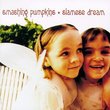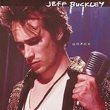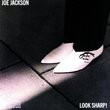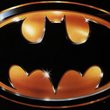| All Artists: Broken Social Scene Title: Feelgood Lost Members Wishing: 0 Total Copies: 0 Label: Arts & Crafts Original Release Date: 1/1/2004 Re-Release Date: 2/24/2004 Genres: Alternative Rock, Special Interest, Pop, Rock Styles: Indie & Lo-Fi, Experimental Music Number of Discs: 1 SwapaCD Credits: 1 UPC: 827590050020 |
Search - Broken Social Scene :: Feelgood Lost
CD DetailsSimilar CDs
Similarly Requested CDs
|
CD ReviewsTheir First and Their Best R. R. Muilenburg | Seattle, WA USA | 05/01/2006 (5 out of 5 stars) "Other reviews on this album immediately reference YFIP and talk about how Feel Good Lost was just a necessary stepping stone on their path to glory, but those reviews are wrong. This IS their glory and everything since pales in comparison. I heard YFIP a while ago, well, I heard Stars and Sons on a mixed CD and was intrigued so I picked it up and gave it a listen and I was in no way blown away. Stars and Cause=Time are indeed priceless gems, but that disc, I'm afraid, will take it's rightful place in the bland sea of indistinguishability that is popular music, sometimes rising to the crest of a wave, but ultimately being crushed under everything. What Feel Good Lost does, what gives it buoyancy, is it travels back to the 60's not in sound, but in attitude, challenging the pop music standards with creative and imaginative twists to the norms, or, in some cases, the complete rejection of conventions altogether. Such is Feel Good Lost, an album that begins with high, whiny violins over a very satisfying base line. Guilty cubicles does a nice job in the segue, keeping the theme of provactive base but trading the violins for some very mellow guitar plucking and perfectly juxtaposed electronic noise- somehow making the hideous dial-up modem misery into an intelligent contributor to a good song. Track 3, Love and Math, continues to follow the meandering bass line except, on this number, the electric guitar makes its first significant contribution, taking the melody load off of the bass for a little while (which refuses to go away). Also featured is a repetitive, up beat drum rhythm that you wouldn't expect to fit with such a perfectly easy song. Passport Radio is what Love and Math would sound like from a strata of the atmosphere only David Bowie or an acid-fueled Grateful Dead would dare go. Lyrics make their first appearance and they sound like an angel singing through a vacuum as semi-trucks drive by, bringing along with them that whoosh everyone knows and hates but has to admit sounds particularly good on this track. Alive in '85 remembers new wave and proves it with the hot hot beat any good synth and drum machine would pump out in a discoteque. It also features what I believe to be a cello and a duet of brass instruments. Prison Province triumphantly ressurects the bass in a haunting solo which reverberates like the signature whistle of The Good, The Bad, and The Ugly. It repeats, lulling the listener into a trance, forgetting it was even listening, but the brilliantly placed Blues for Uncle Gibb snaps the listener right back into uncomfortable attention. American-Indian style drum beats that bounce from right to left in the stereo mix, establishing the atmosphere for a ceremonial manhood rite as an adolescent leaves the comfort of the tribe's drum circle, wandering into the wilderness for a vision. Meanwhile, the plucked strings of an electric guitar give the track continuity with the album, even as a harmonica sweetens the pot and further's the track's theme. Stomach Song makes music with an obscure round of sorts as crowd noise provides a cluttered pallet over which two particular voices weave in and out of the obscurity to talk and echo nonsense phrases, accompanied all the while by evenly played, very electric guitar. This is perhaps the vision of the young man, difficult to interpret but beautiful and heartfelt nonetheless. Mossbraker brings back the drums of Gibb, this time sounding the enthusiastic welcome of the newest member to the tribe. A solo violinist speaks up, not playing notes, per se, but singing a sweet and uneven tune like the vocals of Clap Your Hands Say Yeah!, but slower. The driving force at this point is a bass that sounds like Primus' Les Claypool's if he had a glass of red wine, smoked a pound of grass, then downed half a bottle of vicatin. The Title Track is where repetition begins, returning to ideas earlier in the work and reiterating them, perhaps more eloquently. Feel Good Lost is certainly the most delicate of the songs, and it is a nice bridge between Moss and Last Place. Last Place is not in fact last, but second to it, and it accelerates the pace with the same electronic influenced style of 85. As the 8 minute song progresses, it slowly but progressively builds the wall of sound that backs the beat. It doesn't get anywhere near the obscure levels of the climax of the Decemberists' I Was Meant for The Stage, but the idea is kind of the same. The last track, Cranley's Gonna Make It, might be the most conventional on the album. It still lacks lyrics, and has some interesting instruments (like a very Sufjan banjo part), but the polyrythmic consistency gives it a natural, comfortable feel. It's pretty upbeat, and I would liken it to the end of a long road trip where the van is finally rolling back into the driveway, and you are just so damn excited to see what you know and trust again. On the whole, the journey is a masterpiece. YFIP is a very good piece of music, better than most to be sure, but its retrograde into conventional song form is truly a step away from the brilliance they achieved in Feel Good Lost. Few works sound as good as it, but none sound LIKE it." Feels good to be lost... Manny Hernandez | Bay Area, CA | 07/06/2006 (5 out of 5 stars) "With their debut "Feel Good Lost" album, Broken Social Scene (BSS) broke new ground back in 2001 closely following their fellow Canadians Godspeed You Black Emperor! who had released in 2000 their legendary "Lift Your Skinny Fists..." double album. However, BSS arrived with a lighter (almost dreamy) version of the post-rock alternative presented by Godspeed a year earlier.
The music in this (mostly instrumental) production hints at musical landscapes feeding from the sound of guitars, piano, strings and brass, with a touch of electronic beats that doesn't get old with time. It can feel alien at times, but whenever you approach this territory a familiar ambient feel overwhelms you and leaves you guessing what's next. The tracks range in duration from 1:42 all the way to 8:26, which shows the willingness of the Montreal collective to take their time to tell their story with their music. Looking back, and comparing it against their other albums, it's hard to say which one is best, because this one stands out as being very different from the other ones. However, I cannot emphasize enough how much of a musical jewel this album is. If you haven't heard Broken Social Scene before, you will be happy when you discover how "good it feels to be lost"..." |

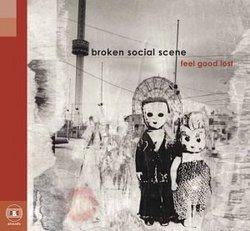
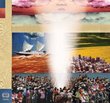

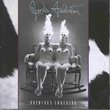
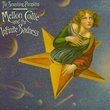
![Broken Social Scene [CD+EP]](https://nationalbookswap.com/cd//m/21/3521/793521.jpg)
